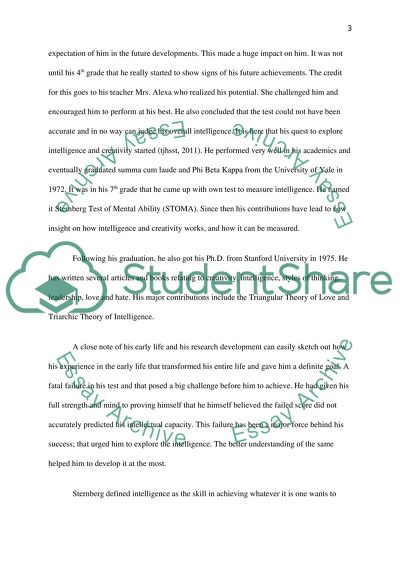Cite this document
(“Robert Jeffrey Sternberg Research Paper Example | Topics and Well Written Essays - 1250 words - 1”, n.d.)
Retrieved from https://studentshare.org/psychology/1577534-robert-sternberg
Retrieved from https://studentshare.org/psychology/1577534-robert-sternberg
(Robert Jeffrey Sternberg Research Paper Example | Topics and Well Written Essays - 1250 Words - 1)
https://studentshare.org/psychology/1577534-robert-sternberg.
https://studentshare.org/psychology/1577534-robert-sternberg.
“Robert Jeffrey Sternberg Research Paper Example | Topics and Well Written Essays - 1250 Words - 1”, n.d. https://studentshare.org/psychology/1577534-robert-sternberg.


